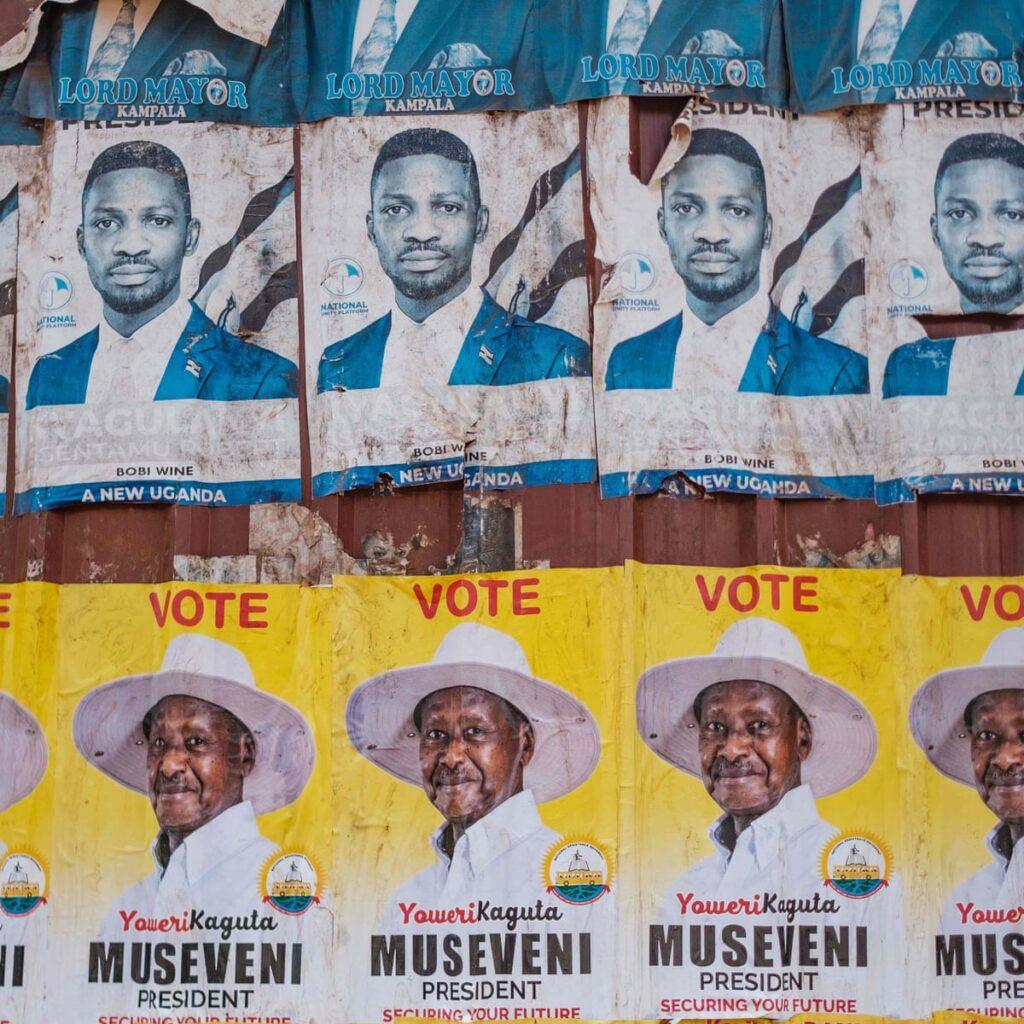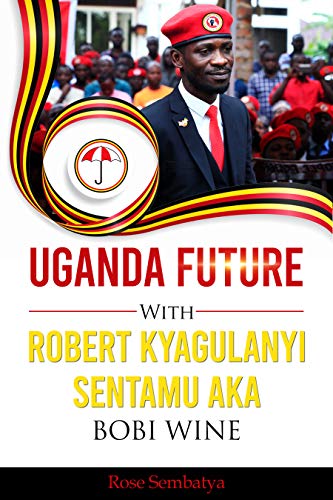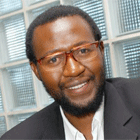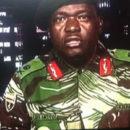
Debating Ideas is a new section that aims to reflect the values and editorial ethos of the African Arguments book series, publishing engaged, often radical, scholarship, original and activist writing from within the African continent and beyond. It will offer debates and engagements, contexts and controversies, and reviews and responses flowing from the African Arguments books.

This is an abridged version of a discussion with Robert Kyagulanyi, aka Bobi Wine, the popular Ugandan musician-turned-opposition politician, who has risen, over the last four years, to become the leader of the East African country’s main opposition party, the National Unity Platform (NUP). We interviewed Kyagulanyi via WhatsApp call, as police surrounded his home, just a day before his incumbent opponent in the disputed January 2021 election, Yoweri Museveni, was officially sworn in as President, thus beginning his 6th term in office. In our conversation, we discussed Uganda’s 2021 election and Kyagulanyi’s decision to withdraw his petition of the electoral results; his entry and subsequent rise in Ugandan opposition politics; the generational dimension of politics in Uganda and Africa more broadly; and the role and influence of the United States in Uganda’s domestic politics.
Luke Melchiorre (LM): In January, the Electoral Commission declared President Museveni the winner of Uganda’s presidential election. You immediately alleged that the results of the election were an “absolute fraud” and promised to release video evidence to support your claims and you still have not conceded defeat. Do you still believe that you won January’s election?
Bobi Wine (BW): I definitely won the January election, and the evidence are the declaration forms that were collected from all over the country. Even though, in many areas people were not allowed to vote. And yes, in many areas, the results were changed by the regime. But even in the face of so much irregularities according to the declaration forms that we were able to collect, we [defeated] General Museveni [by] 4.19%. It could have been much, much more. But nevertheless, we [defeated] him. So, I am sure that I won the election.
LM: If you are sure that you won the election, why did you decide to withdraw the petition challenging the results?
BW: I withdrew the petition challenging the vote because the court system demonstrated the highest level of bias. I was not allowed to tender all of the evidence that I got. Video evidence of soldiers and police officers pre-ticking ballot papers in favour of General Museveni. Many of my agents were arrested and we were not allowed to even access [our detained agents to acquire] the evidence [they had gathered]. The court itself, the Chief Justice demonstrated the highest level of bias, because he blocked me from amending my petition, something that has been allowed by previous petitioners. So, it was clear that that petition was only going to be used to legitimize Museveni’s illegitimate announcement as winner and that’s why we withdrew from the court, because we lost confidence in the Chief Justice and the majority of the justices of the Supreme Court.
LM: Over the course of the election, you and your fellow opposition politicians and supporters were subjected to unprecedented repression on the part of the state: it was initially reported that at least 37 people protesting your arrest were killed in November 2020; hundreds of your political party’s supporters, members and polling agents were arrested and many remain in detention. Given this situation, do you still believe that meaningful political change can come to Uganda through the ballot box?
BW: First of all, I want to say it was not only 37 people that were murdered on the 18th and 19th of November 2020. It was hundreds of people. Even though General Museveni only acknowledged the murder of 54 people. There were much, much more than that. They continued to be murdered. They continued to be abducted. Like you mentioned, [the] unprecedented repression, and all the injustices and oppression, and human rights abuses that continue even to the present day, in fact, the present hour. I still believe that change is possible, but I am not looking at change only at the ballot. I am looking at the people of Uganda, I am calling on the people of Uganda to assert themselves, because this is not the first time General Museveni is losing an election. But again, it is not the first time that he is forcing himself on the people of Uganda.
LM: You have been very vocal about your admiration for radical African leaders, like Thomas Sankara, who were deeply committed to pan-African and socialist ideas. Yet, by your own admission, your party, the National Unity Platform’s political programme, with its emphasis on improving service delivery and good governance, and upholding the rule of law, is relatively moderate. How would you describe your own politics and that of your party, NUP?
BW: First and foremost, I salute Sankara. And I salute many other leaders, not because we have the same political ideology. I salute them for looking out for their people and I salute them for transforming a few things: for empowering women and for effecting real change in a very short time. However, the situation in Uganda, and our circumstances and context are different from that of Burkina Faso and indeed many other countries. But like I said we are moderate, because we are shaped by the time and the challenges [that confront us]. And we want to be as flexible as possible, so that everybody feels empowered, everybody feels equal, and everybody’s ideas feel accommodated in the new Uganda that we envision.

LM: I want to talk about your history with politics. How do you think growing up in Kamwokya during the conflict of the 1980s in Uganda influenced your own political worldview?
BW: Well, it influenced my political worldview, first of all, by depriving me, [because] I grew up in a society, in a community that was deprived. I grew up with a single mother in the ghetto, in the slums of Kamwokya. That connected me so much with other people, but it taught me to share the pains of other people and one of my desires is to ensure that we change the trajectories, that we change the circumstances of people. I entered into the political arena, not as a typical politician, but as a leader, as a revolutionary; as someone that desired to influence and inspire other Ugandans to get politically involved in the running of their country and the transformation of their lives and the lives of those who are like them.
LM: Your father was involved in opposition politics in Uganda during your childhood. Can you tell us a little about his political career? How did his engagement in politics influence your own?
BW: My father was involved in opposition politics and so was my grandfather. My grandfather was part of a rebel group that took over areas of Buganda [Kyagulanyi’s home region] and he worked hand-in-hand with General Museveni. Unfortunately, he was killed by the Obote government, the government that Museveni overthrew. He was killed for being a rebel, for being a Museveni sympathizer. And my father lost everything that the family had. He was sentenced to death. Fortunately, he was pardoned when the Museveni government took over. But that affected my life, because when my elder siblings were growing up, they were growing up in a life of providence. However, because I was born in 1982, in the middle of the war, by the time I turned six, we had more or less lost everything. So, I had to scratch. That influenced me, because it positioned me in the life of need, in the life of luck.
To say that my father’s political life inspired or influenced mine, I would say that that is not accurate. Because, even when I was growing up, my mother always advised me and my other siblings to keep out of politics, because it was politics that had caused all the loses that our family had faced. However, my entry into politics was more out of desperation.
LM: I wanted to talk a little bit about that entry. In 2015, you were approached by the Museveni government to record a song “Tubonga Nawe”, which translates into English as “We are with you”. Is it true that you were offered half a billion Ugandan shillings to participate? Why did you turn this offer down?
BW: I turned that offer down, because my music is not for sale. My conscience is not for sale. Of course, my music is business. And I would say my services are for sale, because I get paid to perform, to sing about products and the like. However, I only do what I believe in. It was morally not right for me to sing praises for a dictator that had impoverished my country for 30 years [by] then, and that is why I decided not to be part of that, and I respectfully turned them down.
LM: Did this incident and the 2016 election have an impact on your eventual decision to enter formal politics? What inspired you to run in the Kyadondo-East by-election in June 2017?
BW: Yes, sure. I would say that no sooner had I turned down that offer from the regime then I started facing subtle economic repression. I was slapped with exorbitant tax bills, and some of my businesses were strangled here and there. But again, it further pointed to me that we are the ones we’ve been waiting for. In 2016, I was quite old enough to see the betrayal of those that we thought would stand for the voiceless. The intellectuals of our country had actually turned out to be users, in fact, misusers of the people. And I thought it was important for me to get involved. I had all along been singing and encouraging people, especially young people, to get involved. But there was no better way to inspire them [than through one’s actions] – not explaining but demonstrating [it].
LM: I want to talk about People Power and the National Unity Platform, but before I get there: you surprised many political experts in Uganda, by winning in a huge landslide in the Kyadondo East constituency. What, if anything, made your approach to campaigning different from the other candidates during that campaign?
BW: Well, I was real. I was not a politician. I was a common man. I found myself representing so many people’s thoughts, by presenting myself as a common person, not as, “professional politician”. I represented the downtrodden, the poor, the unemployed, the sidelined, the excluded, the young people, the angry, the hungry, who are actually the majority, more than 80% of our population. They saw their plight in me. And also, having followed me throughout my music career and listening to my lyrics for more than a decade and a half, they saw they had finally gotten one of their own.
LM: What does the “rope-a-dope” style to campaigning refer to?
BW: [Laughs] The rope-a-dope refers to the informal way of doing things, the unconventional way, the unusual way, the common man way, the unacademic way, that is the rope-a-dope style.
LM: How important was the Age Limit Debate of 2017 in galvanizing the opposition and your own political pressure group, People Power?
BW: The Age Limit, in my opinion, was the most uniting thing for Ugandans against the Museveni dictatorship, because to anybody that was still doubting Museveni’s dictatorial tendencies, this was the straw that broke the camel’s back. Because it came out very clearly that General Museveni will never relinquish power; that General Museveni was intending to be President for life. [Because] I found myself in parliament, I stood firm together with other Members of Parliament who were, by the way, from both opposition parties and the ruling party. Coming together has been our strength. When the parliament finally passed that bill making it into law [removing presidential age limits from the constitution and opening the way for Museveni to run in 2021], we gave Museveni a blank cheque to be president forever. That was when I made the decision that if nobody was going to challenge this guy, I, on behalf of my generation, will challenge him.
LM: When you speak about People Power, who are “the people” that you are referring to?
BW: I am referring to everybody. I am referring to the common people, the boda-boda riders, the students, the lawyers, the doctors, the farmers, the house-helps. Those young people who are over 80% of our population, but they are disenfranchised. We derive the name People Power, Our Power from Article 1 of our constitution, which declares that all power belongs to the people. So, we wanted to communicate that to all the people of Uganda; to let them know that actually they have the power, they only need to exercise it.

LM: In July 2020, you surprised many in Uganda, including the government, by taking over your own political party, the National Unity Platform (NUP). Why did you feel the need to join a political party just prior to the 2021 election? What could NUP offer you that your previous pressure group, People Power, could not?
BW: Well, like it is clear that I do not do politics alone. We have to do it together. While I know that pressure groups and political movements are provided for in the law, we had to find something that unifies us, a common symbol, and a common agenda. And because business in parliament is formal, we had to formalize in such a way. We may have wanted to register the People Power movement as a political party, but for more than a year we were blocked by the regime. Orders were issued that the People Power movement could not be registered as a political party. And General Museveni made sure to influence all other political parties that we had been working together with, particularly the Democratic Party and the Forum for Democratic Change, to disengage and distance themselves from myself and the People Power movement. I had hoped to run [for president] under the Democratic Party, but the then president of Democratic Party denied us that opportunity and so did the Forum for Democratic Change. That is why we, under extreme concealment, went ahead to join the National Unity Platform, which later elected me to be its President and leader, and then I invited masses to join me.
LM: The National Unity Platform performed very well in the last election becoming the leading party of the opposition. NUP did especially well in your home region of Buganda. Some of your critics both in government and in the opposition have used this success to accuse your party of being an ethnic or a tribal party. How do you respond to such criticisms or characterizations?
BW: I’ll say that those accusations and criticisms have come from General Museveni. I will ask this to those that are criticizing us for having so much support from where I come from: since when did it become tribal for one to be supported in their home area? I will remind everybody that the Secretary-General of the National Unity Platform is not from my tribe. Three of our Deputy Presidents are not from my tribe and the majority of the leadership of the National Unity Platform is not from my tribe. It has been a habit for General Museveni, like all dictators, to turn something that he has been doing and use it to target his adversaries. It is called reverse tribalism and that is exactly what President Museveni has been practising.
LM: While the estimates vary, somewhere around 77% of Uganda’s population is below the age of 30. In the past, you have claimed to represent a “generational cause” in Ugandan politics, and you even suggested that the last election pitted the “Facebook generation” of your supporters against the “Facelift generation” of the Museveni elite. How important do you think the generational dimension proved to be in January’s election?
BW: The generational dimension was there for everybody to see. As you will remember that the 2021 election, in particular the campaigns, were not something to call a presidential campaign. It was more or less a war. Because I went into those campaigns putting on a bulletproof vest and a ballistic helmet for protection. I survived numerous assassination attempts, particularly surviving gun shots three times when bullets were fired at my car and one of them went through my windscreen; it was the grace of god that saved me. So, I would say that General Museveni was and is still scared of the young people of this country, who are the majority, who turn out in numbers to support us and indeed to vote.

LM: Do you think your relative success in the 2021 election in Uganda can offer a model to opposition parties in other African countries, with similar demographic profiles, who are facing similar political obstacles?
BW: Certainly! Our message was and continues to be, not only for the people of Uganda, but for the people of Africa and the world. Africa is the most youthful continent, and Uganda in particular is the youngest, actually second youngest country after Guinea. It has been a message from us to the young people to rise to the occasion and use their numbers to determine their destiny, well knowing that they are stuck in a non-functioning Africa, where the largely senile leaders are presiding over a young population. So, it is upon the young people of Africa to rise to the occasion and be the ones to channel and determine their destiny. It has been our message not only for Uganda, but Africa and the world over.
LM: The Daily Monitor reported today that President Museveni recently hinted he will not sign the newly enacted Sexual Offences Act, which would among other things further criminalize homosexuality in Uganda and set 10-year jail terms for offenders. In 2014, you were denied a visa to the visit the UK after LGBTQ advocates accused you of inciting homophobic attacks with your lyrics. I know that over the last seven years, your position on these issues has changed considerably to the point where President Museveni has called you “an agent of foreign interests” and said that “homosexuals are very happy with Bobi Wine”. Can you talk about what your position is on LGBTQ rights in Uganda today and how and why that position has evolved?
BW: Well like any human being, you know, I am bound not only by my thoughts as an individual, but by thoughts that are generated by all various people. That explains why General Museveni has been attacking me and claiming I am being supported by homosexuals and foreigners. It has been General Museveni’s way of doing things. I have said, and I will say again, I am for human rights, and regardless of people’s divergent thoughts, I believe that it is my duty, as a leader, to defend the rights of everybody, even those that are different from me.
LM: You have been critical of the United States’ historical support of the Museveni regime, or “America’s Favorite African Strongman”, as you called him in the New York Times in July 2020. In an ideal world, what role, if any, should the US play in Ugandan domestic politics?
BW: In an ideal world, the role of the United States, and indeed all development partners, is to be bound by the values that bring us together as the international community. Values, like respect for human rights. Values, like respect for democracy. Values, like respect for the rule of law. And that should cut across regardless of who we are dealing with. Of course, we appreciate the cooperation from the United States, but again, we still hold the United States to live by their values. We are aware that quite a lot of military support is being given to Uganda to the tune of almost a billion dollars every year.[i] But again, this aid is clearly used for the repression of [Ugandan] people, for the murder of people, for the disrespect of democracy, for abuse of rights of citizens, tortures, abductions, name it. We have already called upon the United States to hold Uganda accountable and make the rule of law and respect for human rights and democracy a pre-condition for cooperation. These are the same values that we also want to be held accountable for, because these are universal values. These are values that keep us together as members of the international community.
LM: Finally, as things currently stand, what do you think your political future holds? Do you intend to run for the presidency again in 2026?
BW: Thank you. First of all, I must tell you that I look at the future, not the political future. Just like I mentioned, I am not a politician. I am a common Ugandan, a musician, that’s all my role. That’s all my responsibility. Just like I am encouraging the doctors, the farmers, the teachers, the soldiers, everybody to get actively involved and play their role. Either by running for positions, or by supporting those with the right agenda for their people, or by teaching and spreading the word. So, coming to your question of whether I intend to run again in 2026, it is until the people of Uganda have the right to assert their voice that is when elections are going to make sense. I ran for president and I won, and it is me who is supposed to be sworn in tomorrow. But unfortunately using the military, and using the fact that he has usurped all the powers from the institutions of Uganda, General Museveni is swearing himself in having put everybody else at gunpoint. As we speak right now, my home continues to be surrounded by the military, putting me effectively under house arrest. The military has surrounded every town here in Uganda, trying to subjugate the people of Uganda into silence. That is what is happening now. So, we cannot talk about 2026, when we have a president to deal with every day, every year, every month. In fact, every hour that Museveni continues to rule over our country, we continue to sink down the drain. Our liberation is not a matter of 2026, our liberation is a matter of now.
End Note
[i] According to the US State Department, the US government provides significant development and security assistance to Uganda, with a total assistance budget exceeding $970 million per year, as of December 2019.






